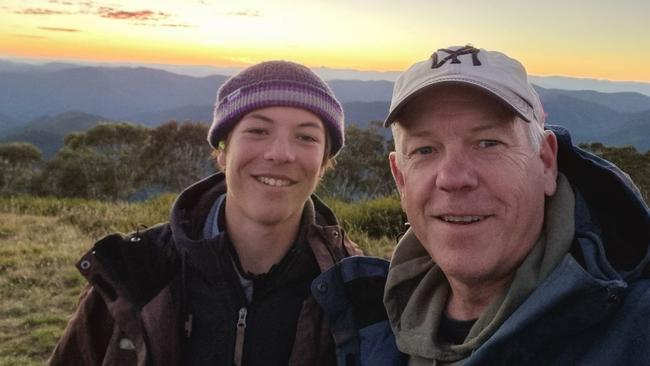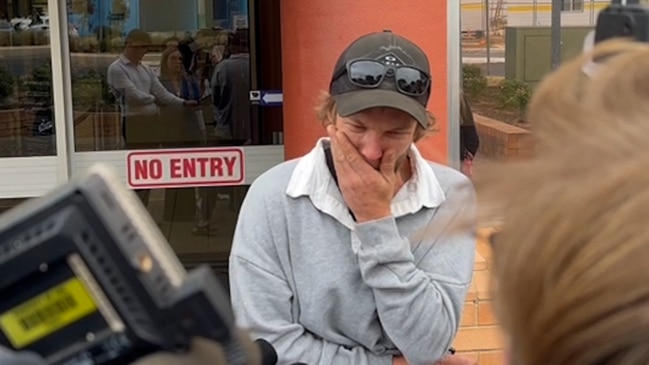South Australia’s driving laws need to do more | David Penberthy
Our politicians have lost touch with public expectations on the treatment of the dangerous menaces who ignore our road laws, writes David Penberthy.

Opinion
Don't miss out on the headlines from Opinion. Followed categories will be added to My News.
It’s a been a difficult week for finding the right words. A difficult week to find words to convey the rawest emotions.
We have pretty much exhausted the list of words used to describe sadness.
But there is one other word which keeps ringing in my ears. It is a word which goes more to a feeling of anger than sorrow.
That word is futility.
The most maddening feature of the 20-page road toll edition The Advertiser produced on Wednesday was the utterly futile nature of all this death and devastation.
How many of those people would be alive today if they hadn’t taken risks or been the victims of others taking similar silly risks?
How many would be alive if they hadn’t been hooning around to impress their mates or feel the thrill of speeding on a powerful motorbike, or herbing around a corner on some country road with which they weren’t familiar?
How many would be alive if not for some split second moment of inattention on their own part, fiddling around to synch their stereo to Spotify, glancing down at a text despite not physically touching their phone, simply being too tired to be on the road?
How many of them did nothing wrong at all but were in the wrong place at the wrong time when someone else was making a mistake or behaving in a way which meant a collision was likely if not inevitable?
Flicking through those pages on Wednesday had the effect of humanising these 101 people who had otherwise been bland statistics without names and families and lives of their own.
As befits his tenure as commissioner, it was Grant Stevens and his wife Emma who showed the most heart-wrenching leadership on that score with their tribute to “101”, their son Charlie.

Speaking of struggling to find words, it is hard to think of any to convey how remarkable that letter is.
It is an act of love first and foremost towards Charlie, who is not a statistic – as Grant and Emma Stevens put it, “so much more than just a number on a tragic tally”.
It was also an act of love to the people of South Australia, where with maximum force they were showing us how any of our kids, and any of us, could end up in this same miserable, life-altering situation.
READ MORE: The faces behind the shattering impact of 102 lives lost on our roads
Over the past few days I have heard a lot of people advocating a lot of ideas about what can be done to get the road toll down.
People have called for more confronting education campaigns, more high-visibility policing, and more police in general, mandatory refresher tests for drivers every five years…the list goes on.
There have also been calls for a root-and-branch rethink for the laws covering driving and the penalties and preventive measures that can be used against people who habitually and/or seriously ignore those laws.
On this part of the discussion, the parliament and the legal system fail to reflect the public’s sense of despair at this avoidable carnage.
Much has been said about the comments Grant Stevens made last Wednesday about the human impact of the road toll, tragically unaware that just two days later it would be his own son and family who would become the latest group of South Australians to be caught in the horror of it all.

It is worth remembering that the impetus for our conversation with the commissioner was a completely avoidable road death that week where father of two Brad Thompson was killed while riding his motorbike in a crash with motorist Christopher Bennett, 29, of Elizabeth Park.
Bennett is facing charges arising from the crash and is of course innocent until proven guilty.
What we can comment on, though, is that Bennett was driving disqualified at the time of the crash.
Not for the first time.
Or the second time. Or the third, fourth or fifth time.
He wasn’t driving disqualified for the 6th time. Not for the 7th, 8th, 9th, 10th time.
Christopher Bennett was driving disqualified for the 11th time when he allegedly killed Brad Thompson.
Bennett, you may recall, is the man who gave the four-minute impromptu press conference outside the Elizabeth Magistrates Court.

He described what happened as a terrible accident, said he felt such sadness for the man who had died, and gestured as if he was wiping away tears.
The sincerity of his performance was marred somewhat when a reporter attempted to ask him a question and Bennett replied “I am still talking you f…ing c…”.
Save for that, it was a bravura effort by someone who thinks this was an innocent and unavoidable mishap, just one of those things, and hopes the courts eventually agree with that assessment.
As I said, we offer no comment on his guilt or innocence.
But off the back of this case, we have every right to wonder about the strength of the statutes and the preparedness of the courts to apply available sentences against habitual flouters of the law.
Indeed, the background to that case had so exercised the mind of the Commissioner that he took it upon himself to find out how many people have been caught driving disqualified this year.
As of last week more than 3000 people had been caught in SA this year alone, and more than 1000 of them have never had a licence at all.
One easy fix might be to make the purchase of a car conditional on the ability to provide a current licence.
Beyond that – call me crazy – maybe we could have mandatory jail terms for people who get caught driving more than three times without a licence.
It would just be good to see more thought and effort on the part of those entrusted with keeping us safe and meting out justice.
More has to be done.
We found out last year that you can get around in a Lamborghini with the number plate PSYKO, the car deliberately set to race mode, with a court finding you were not fully capable of driving such a high-powered vehicle when you killed an innocent girl – and even that won’t get you jailed in South Australia.
More Coverage
Read related topics:Charlie Stevens death





